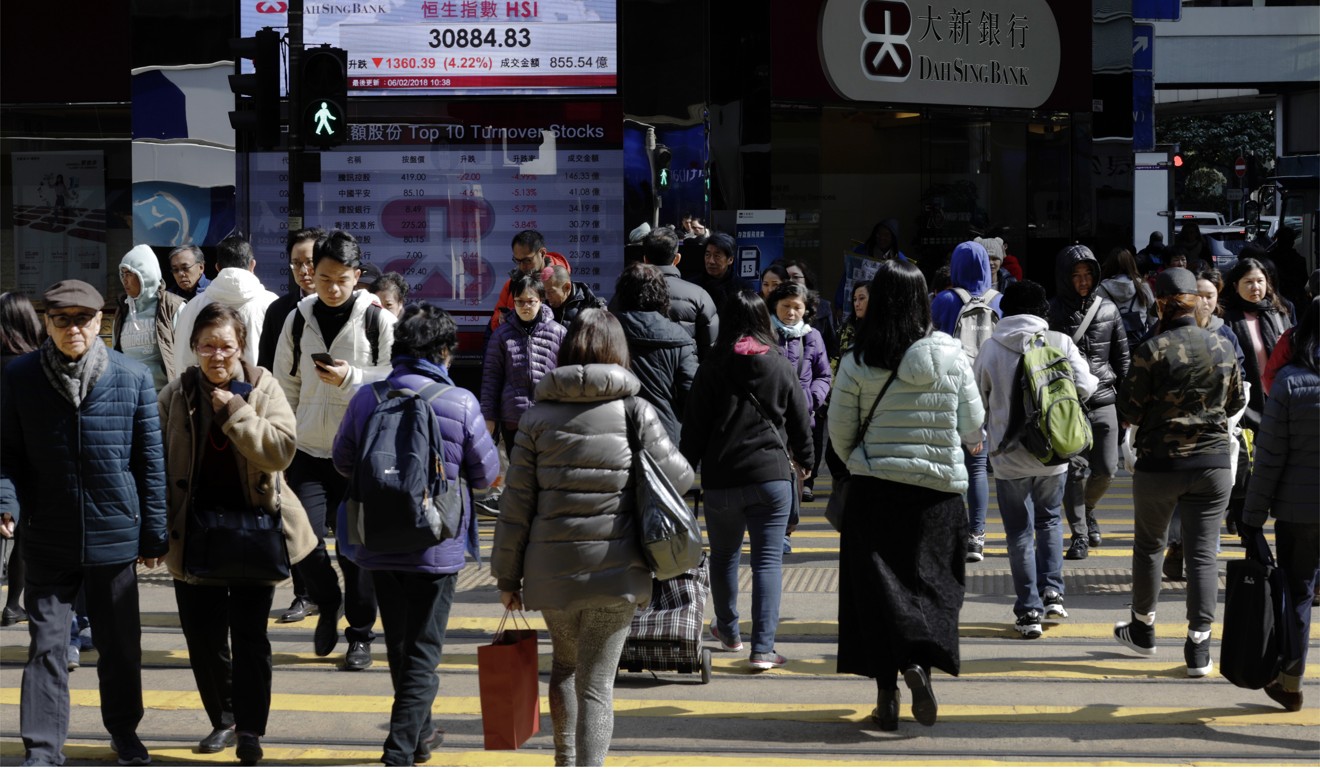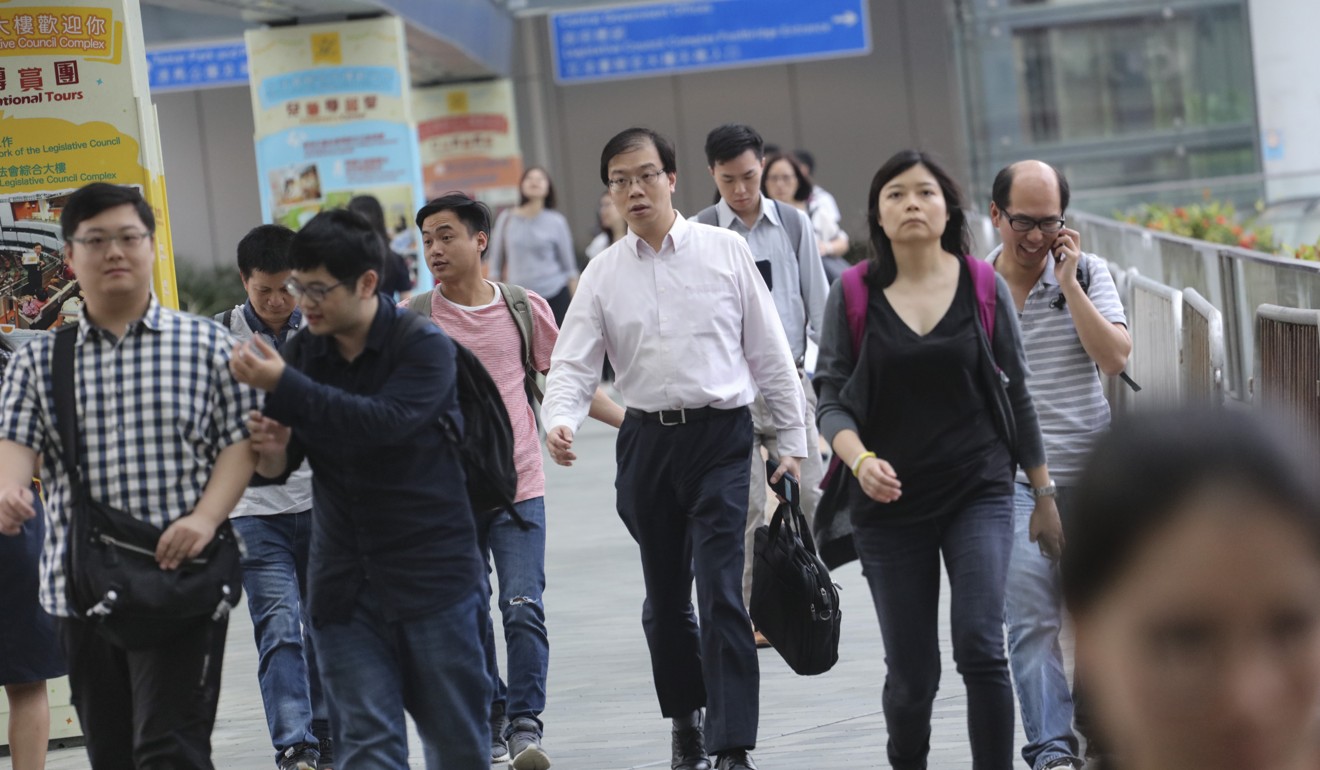
Runaway pay for Hong Kong NGO managers criticised after HK$7.8 million of public money dished out as subsidies
Study finds basic salaries for top executives at publicly funded social service groups were often higher than civil servants of the same rank
Thirty-two Hong Kong social service groups supported by the government paid out more than HK$7.8 million in cash subsidies in the 2016-17 financial year to their top executives, whose basic salaries were often higher than civil servants of the same rank, a survey by a social workers’ union has revealed.
At the Hong Kong Lutheran Social Service, the study found a typical inverted triangle salary structure, with its chief social work officer seeing her basic annual salary rise from HK$1.05 million to HK$1.3 million between 2014-15 and 2016-17.
Meanwhile social work assistants were paid between HK$247,800 and HK$421,020 – just 18 to 30 per cent of the amount the chief officer received.
The group behind the study – the Social Welfare Organisations Employees Union, a member of the Confederation of Trade Unions – called on the government’s Social Welfare Department to revise NGO salary guidelines to align and cap remuneration in line with civil service pay scales.
Officials aim to add social services to land sale contracts as plan for elderly centres at prime Hong Kong site gets nod
Salaries for managers and frontline staff at NGOs should be decided according to the same set of principles and rules to guarantee fair pay, the union argued.
Tsang Kei-nam, the union’s secretary general, said the salary structures in the social services industry had developed into “a shape with a swollen top and wizened bottom”.
“It’s unacceptable that the managers do not have their salaries pegged to the civil servants but the same standards are applied to staff at the lower ranks,” Tsang said.

“Some argue the managers are good value for money. So are frontline social workers of little value?”
The union studied the 2016-17 financial reports of 66 social service groups, out of a total of 67 required by the government to disclose how they spent their funds. The only group that did not release a report was the Kowloon Women’s Welfare Club.
The 67 groups were among 167 NGOs under the government’s lump sum grant scheme in 2016-17, which saw them supplied with a total of HK$12.5 billion in public money.
Among the 66 NGOs studied, 32 gave executives in the top three tiers of management cash subsidies amounting to HK$7.88 million in total.
The largest individual subsidies, of HK$767,000, went to two secretary generals at Po Leung Kuk, which provides support for orphaned children. That sum increased by 50 per cent between 2014-15 and 2016-17.
Elderly tragedies 'highlight the desperate flaws in Hong Kong's social services'
Beneath the cash subsidies were basic salaries higher than social welfare officials at the same rank.
The two secretary generals, on par with government chief social work officers, received an annual salary of HK$1.57 million on average – some HK$303,000 more than the starting salary for that rank in the civil service.
Fourteen other NGOs were also found to be paying their top managers salaries higher than their peers in the civil service.
Heep Hong Society, a child education and rehabilitation organisation, paid its executive officer, also at the rank of chief social work officer, HK$1.65 million, some HK$180,000 more than the top salary for the rank.

Existing rules governing NGO inclusion in the lump sum grant scheme allow participating groups to decide salaries and subsidies on their own. One hundred of the 167 NGOs under the scheme were exempted from disclosing their financial reports.
The union said the lack of supervision amounted to allowing NGO managers to enrich themselves, which had “seriously undermined morale among frontline staff”.
The social service branch of the Lutheran Church said wages, subsidies and other staff costs were “discussed and approved” by the group’s governing committee according to the guidances from the Social Welfare Department.
A spokesman for Po Leung Kuk said the two managers in question had their basic salaries frozen at the level in place before their promotions to the top tier, and their subsidies reflected their “duties and performance after promotion”.
Heep Hong Society said wages for all staff were determined according to their positions and duties, with reference to salaries in the civil service and private sector.
None of the three groups gave specific reasons for the high wages afforded managers.
A spokeswoman for the Social Welfare Department said it set up a special task force in November to fully review the lump sum grant scheme. Remuneration policies and pay scales for the social services sector would be one of the areas to “review in detail”, it said.

